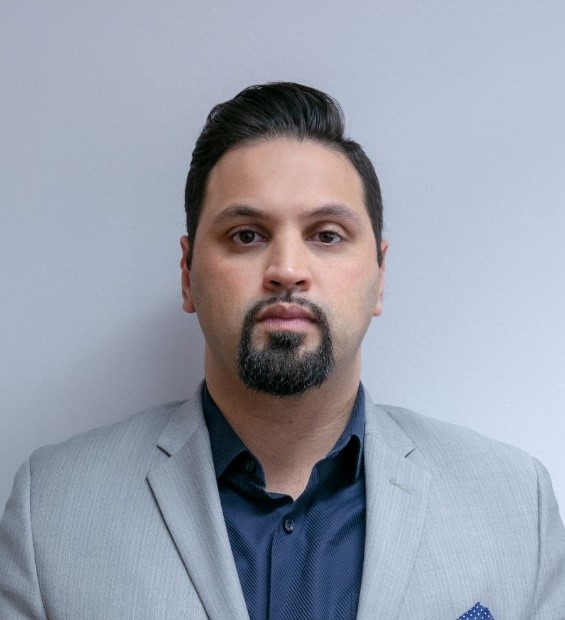
Q&A with Shezad Kapadia of AMSYS Capital
CEO
Principal Series:
Amsys Capital is an alternative investment firm that looks to invest in six core verticals. Our first offering is our Digital Asset Hedge Fund. We apply our signature guiding principles, which are driven by ecosystem value investing, to achieve above average returns for our stake holders. We have a detailed Investment and disciplined due diligence approach that seeks to manage volatility in each of our investments. AMSYS Capital looks to leverage our team and affiliate partners’ collective experiences to add value, support, and grow our investments. Our leadership team consists of seasoned equities & commodities traders, investment banking & commercial banking veterans, and serial entrepreneurs all of which have extensive track records in business and finance.
Amsys Digital Asset Fund has completed its first nines month of trading, and has proven to its track record. The fund generated Gross Returns of 123.51% for the nine month period: October 1, 2018 – June 30, 2019. Over the same period, other benchmarks have been slow to catch up: (i) Bitcoin: 62.83%, (ii) Eurekahedge Crypto-Currency HFI: 32.47%, and (iii) Barclay Crypto-Currency Traders Index: 41.44%.

Family Office Insights is a voluntary, “opt-in” collaborative peer-to-peer community of single family offices, qualified investors and institutional investors. Join the community here www.familyofficeinsights.com
What is the potential of the crypto market?
The crypto market offers uncorrelated alpha that can provide beneficial returns to those who are able to properly manage the volatility swings that the market goes through daily. The market is traded 24/7 so there are lots of strategies that can be implemented to take advantage of the lack of participation from seasoned traders and institutional algorithms. Since the market is still in its early stages as many of these token companies are considered as startups, there is massive potential being a new market where these startups can turn into full-fledged companies.
What are the challenges and benefits of incorporating Crypto into a portfolio?
Institutions, Family Offices, and other traditional investment vehicles have faced significant regulatory and custody issues up until this point. Many prominent exchanges don’t fall under US jurisdiction and are basically unregulated. This has led to wash trading, dishonest business practices, and non-transparent operations. While this may strike some as a reason to avoid Crypto assets, it is simply growing pains of a new asset class. As this asset class matures, honest and reputable exchanges have solidified their position and the bad actors are slowly being washed out. Between Fidelity recently offering Bitcoin trading and custody solutions and the CME exchange bitcoin futures contract hitting record daily volume over half a billion dollars, with proper due diligence, exchange security and custody are no longer the major concerns they once were. Adding Crypto to a diversified portfolio offers tremendous potential benefits. To start, Crypto assets have effectively zero correlation to any other asset class and added to a portfolio can reduce volatility and enhance returns. the average rolling one-month correlations range from slightly negative to slightly positive, with an average correlation of zero. This provides evidence that digital assets can be considered a diversifying component in multi-asset portfolios. Moreover, many digital assets are imperfectly correlated to one another, which means there are even more diversification benefits within the asset class itself. Crypto assets offer unique market opportunities and risks, thus creating a diversifying return stream for investors. As such, they should be considered a component of the optimal beta portfolio alongside traditional assets such as equities, bonds, and real estate.
Is the Crypto industry sustainable?
The public at large has yet to fully understand the world changing implications of the Crypto industry. Most think it to be a speculative bubble based on false hope and assumptions, a mania with no basis in reality. As with technology revolutions of the past, Crypto requires thinking outside of traditional metrics and definitions of value. In the early days of the internet the scope of its impact was once estimated to be the collective users of the post office and newspapers. It was difficult to see the potential with the limited tangible products. People had trouble understanding how the democratization of information could have world changing implications. Much like the internet opened Pandora’s Box for information, Crypto is doing the same for value. Crypto can be thought of as “the internet of value”. Open, distributed ledgers and permissionless, censorship-resistant, trust-minimized computation are going to reshape massive sectors of the global economy. Currently, much like the internet in 1995, the products and usability are a bit of a mess, and regulation is only starting to come together. The potential however, is profound. Use cases span non-seizable assets, censorship-resistant prediction markets, asset tokenization, new online advertising systems, and jurisdiction-less enterprises.

Shezad Kapadia of AMSYS Capital
Mr. Shezad Kapadia is a Manager and Principal of Amsys Capital, LLC. Mr. Kapadia is a commercial and investment banking professional. Prior to joining AMSYS Capital, Mr. Kapadia served as a director at Société Générale Corporate & Investment Banking, Inc., from September 2012 to May 2018, where he oversaw a team of associates and analysts in the bank’s Commercial and Investment Banking division. During his time with Société Générale, Mr. Kapadia played an integral role in the origination, structuring, and placing of over $3.5 billion of financings within the equity and debt capital markets. Mr. Kapadia received multiple top achiever awards with Société Générale, including being inducted into the bank’s Emerging Leaders Program. Mr. Kapadia has been investing in crypto since 2016.
Mr. Kapadia holds a Master of Business Administration degree from the University of Houston, which he received in 2013 and a Bachelor of Business Administration degree from the University of Texas at Austin, which he received in 2006. He also holds Series 3, Series 63 and Series 79 licenses.
